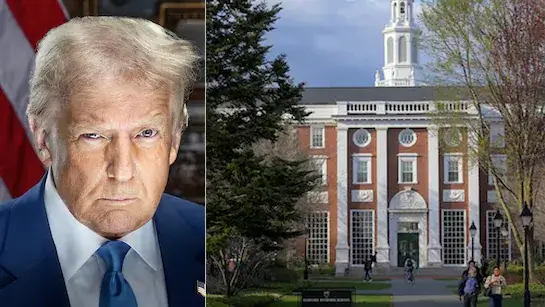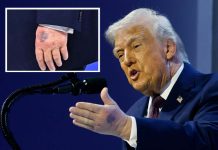U.S. President Donald Trump has signed a controversial proclamation suspending the issuance of visas to new international students seeking to attend Harvard University—an unprecedented escalation in the administration’s crackdown on elite academic institutions.
The order blocks the issuance of F, M, and J visas—the primary categories for international students and academic exchange visitors—to all new Harvard enrollees from abroad. It also empowers the Secretary of State to review and potentially revoke visas of current international students at the university who fall under the proclamation’s criteria.
Harvard, where nearly 27% of the student body is international, now faces renewed uncertainty following a federal judge’s recent decision to block an earlier attempt by the administration to curtail foreign student enrollment.
A university spokesperson condemned the proclamation, calling it “an illegal and retaliatory move that violates Harvard’s First Amendment rights.” The spokesperson vowed that Harvard would continue to defend its international students and uphold its global academic mission.
The White House has framed the action as a national security measure, alleging that Harvard maintains opaque foreign ties and fosters an environment of radicalism.
Citing a controversial internal report that listed just three disciplinary cases involving foreign students, the administration accused the university of underreporting misconduct and failing to address antisemitism on campus. Officials also criticized Harvard’s continued support for diversity, equity, and inclusion (DEI) initiatives.
The proclamation does include exemptions for individuals whose entry is deemed in the national interest and does not apply to students attending other U.S. institutions through the Student and Exchange Visitor Program (SEVP). The policy is set to last for six months but includes a clause for review and possible extension after 90 days.
In the document, the administration declared Harvard “an unsuitable destination for foreign students and researchers.”
The Chinese government, a key source of international students in the U.S., swiftly condemned the move. A Foreign Ministry spokesperson called the decision “politically motivated” and warned that it would harm bilateral educational cooperation.
This latest action follows a series of legal and financial clashes between the Trump administration and Harvard. In March, federal officials announced a review of Harvard’s $9 billion in federal contracts and grants, citing alleged noncompliance with disclosure rules and ideological bias.
Harvard responded with a lawsuit after $2.2 billion in funding was frozen and an additional $450 million in grants cut. The administration has since ordered federal agencies to cancel remaining contracts with the university, totaling an estimated $100 million.
Trump officials have also targeted Columbia University in a parallel move, questioning its accreditation status due to alleged failure to protect Jewish students.
The Harvard proclamation is the latest flashpoint in the administration’s broader campaign to reshape higher education, raising alarm among educators and rights advocates who fear the erosion of academic freedom and international cooperation.












